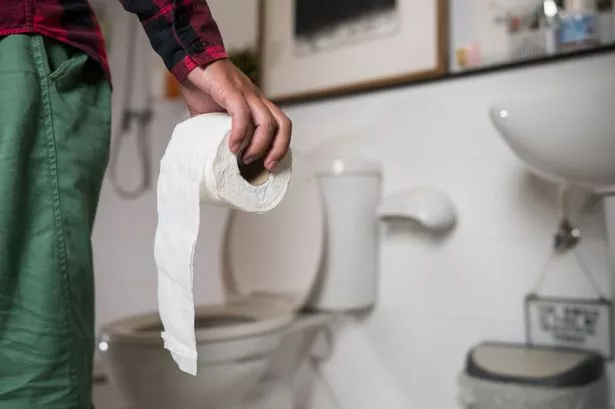Prostate cancer symptoms can often go unnoticed for years due to the slow progression of the disease.
It's important to be aware of changes in toilet habits, such as an increased urge to urinate or straining when doing so. This can occur when the cancer causes the prostate to enlarge, affecting the bladder.
The NHS advises not to dismiss these symptoms, even though they may not necessarily indicate prostate cancer. One in eight men in the UK will develop prostate cancer during their lifetime, but if diagnosed at its earliest stage, 100% of people will survive the disease for five years or more.
Leading urologist Petr Holy from Men's Health Clinic in Kingston previously spoke to the Mirror about the key symptoms to look out for and how treatment works if you have been diagnosed.
Prostate cancer symptoms

There are no obvious symptoms of the disease, but certain signs should be noted when going to the toilet. Approximately 78% of those diagnosed will survive for 10 or more years, but survival rates largely depend on early diagnosis.
If you experience any of the following seven symptoms, it's recommended to discuss prostate-specific antigen screening with your doctor.
"While changes in toilet habits can sometimes be a temporary issue caused by factors such as diet and lifestyle, they can also be one of the first signs of a prostate problem," says Mr Holy.
"An urgent need to wee, more frequent trips to the toilet, a slow or interrupted flow and a feeling of still needing to urinate even when you have finished are among the most common red flags."
"It's vital for men to be on alert for any of these changes and seek advice from an expert if it becomes a pattern."
Other symptoms of prostate cancer
- Trouble urinating
- Decreased force in the stream of urine
- Blood in urine
- Blood in the semen
- Bone pain
- Losing weight without trying
- Erectile dysfunction
Prostate cancer treatment
"Prostate cancer can be treated effectively if detected early enough and an early diagnosis often leads to a better outcome," added Mr Holy.
According to the NHS: "Prostate cancer does not usually cause any symptoms until the cancer has grown large enough to put pressure on the tube that carries urine from the bladder out of the penis (urethra).
"As there is no way of knowing whether or not you have prostate cancer on your own, men are advised to see their GP if they show any symptoms of the disease.Though they may not have prostate disease or cancer, it is best to get confirmation from a medical professional.
According to Prostate Cancer UK: "As there is no way of knowing whether or not you have prostate cancer on your own, men are advised to see their GP if they show any symptoms of the disease.Though they may not have prostate disease or cancer, it is best to get confirmation from a medical professional.
"You may want to speak to your GP if you're over 50, or over 45 if you have a family history of prostate cancer or are a black man, even if you don't have any symptoms."
"These are all things that can increase your risk of prostate cancer. Your GP can give more information or tests if necessary."























